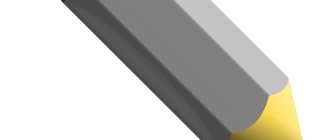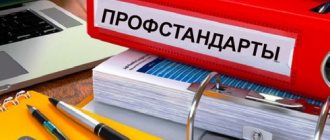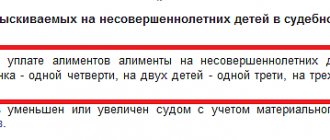What is the professional standard for a preschool teacher?
Let us immediately note that since 2020, the professional standard of a preschool teacher is mandatory. That is, the employer is obliged to take into account his requirements when hiring an applicant for a position. The professional standard was adopted in 2013, but then revised for several years before being transferred from the category of recommendations to mandatory.
The professional standard of a teacher lists all the functions and requirements for such workers, mandatory skills and abilities. Essentially, this document is a list of all the criteria by which an employer can decide whether to hire a given person. The professional standard of a teacher has become mandatory because this profession is very important, and special requirements are put forward for such specialists.
The professional standard of a preschool teacher is a document that sets out the basic requirements for the professional skills and knowledge of a preschool teacher. For any kindergarten teacher, this is a fundamental document that plays a vital role in his professional life and activities. According to this standard, the qualification level of the teaching staff is established, job descriptions are created and requirements for personnel are formulated when hiring in preschool educational institutions.
At the moment, the professional standard in the field of education is in a stage of constant change and formation. This causes many complaints, but such a process is inevitable and necessary, since society is developing, the requirements for education, its level and the methods used are constantly changing.
In order to comply with the requirements and provisions of the standard for the teaching staff of a preschool institution, its employees will have to monitor and study the current version of the document at a particular time.
Introduction and purpose of professional standards in the field of education
Before the professional standard began to be used, the work of preschool educational institutions employees was regulated by the Unified Qualification Directory of Positions of Managers, Specialists and Employees. But this document recorded only the basic provisions of the activities of educators and teachers, which does not correspond to the modern situation.
At the moment, two main documents regulate the work of kindergarten employees:
- Professional standard approved by the Ministry of Labor of the Russian Federation.
- Federal State Educational Standard, or Federal State Educational Standard, which is approved by the Ministry of Education and Science of the Russian Federation.
Despite all the external similarities, both of these documents perform different functions. To identify the difference, it is necessary to give the concept of a teacher’s professional standard. It was created to directly regulate the work of personnel, and the Federal State Educational Standard regulates the activities of the educational situation, in this case, a kindergarten.
The professional standard was approved by the Ministry of Labor and Social Protection of the Russian Federation No. 544N dated October 8, 2013. On August 5, 2016, changes were made to it to adjust the requirements for the level of education and training of teaching staff of preschool educational institutions.
Contents of the teacher’s professional standard
The modern professional standard of a teacher educator includes a description of the employee’s core activities and his competencies. They include the knowledge and skills necessary for each teacher to perform their job duties.
The professional standard contains descriptions of the main work functions of preschool teachers and requirements for their training and level of education. The use of a professional standard helps in the process of searching for new employees and contributes to the creation of precisely formulated job descriptions. It also contributes to the creation of a unified nationwide system for assessing the professional level of teaching staff, which helps conduct certification according to the most objective scheme.
Basic requirements for a teacher
A person who meets the following professional standard requirements can apply for the corresponding position:
- Secondary vocational or higher specialized education, that is, corresponding to the direction of “Education and Pedagogical Sciences”. This is the first option for the possible level of training of a preschool teacher.
- Secondary vocational or higher education in any field and the presence of additional specialized education that allows you to work as a teacher or educator.
Already working teachers can undergo continuous improvement of their qualifications in relevant courses. Also, the applicant for the role of educator or teacher will be required to have no criminal record and good health, confirmed by the presence of an appropriate medical certificate. There are no special standards for work experience - you may not have it.
Basic knowledge of teaching staff
To perform his job, the teacher must have the following knowledge:
- Basic knowledge of children's rights, education laws and Federal State Educational Standards related to preschool education.
- Operating principles of the main educational systems, their history and application in practice.
- Fundamentals of teaching methods and educational work.
- Subtleties of working with preschool children.
- Basic psychological approaches to preschool care and education.
- Studying the classics of pedagogical science related to teaching children in kindergartens.
- Psychology and physiology of development of a child of early and middle age.
- Main trends in modern pedagogical science in the field of preschool education.
On January 10, 2017, the Ministry of Labor of the Russian Federation adopted Order No. 10N, which approved the professional standard “Specialist in the Field of Education.” It is necessary to take into account that the position of educator and senior educator is not covered by this document; the professional standard of a social educator is included.
Functions of a teacher according to professional standards
The professional standard of a kindergarten teacher requires him to perform the following labor functions:
- Educational, using advanced forms of education, the development of children's creative abilities, the use of various methods of activity for pupils, the comprehensive development and formation of social skills in preschoolers.
- Pedagogical, aimed at implementing modern preschool education programs. In light of this function, the teacher participates in the development of the general education program of the preschool educational institution in compliance with the requirements of the Federal State Educational Standard. The teacher is also busy creating a comfortable psychological environment for children, reporting and monitoring his own professional activities, preparing students for future studies at school, and introducing innovative teaching methods.
To meet the requirements of the professional standard, kindergarten teachers must constantly improve their professional level, following the latest trends in pedagogy.
Structure of the professional standard for a teacher
The professional standard for a teacher is no different in structure from other standards developed by the Ministry of Labor for various specialties. There is a template according to which all similar documents are drawn up.
The professional standard includes four sections. The first three are devoted to information about the profession itself, the requirements for its representatives, as well as responsibilities. The fourth section is for reference; it contains information about the developers of the professional standard.
In general, the document structure looks like this:
- General description of the professional standard.
- Table with specialist functions.
- Detailed description of each function.
- Information about the developers of the document.
Education Specialist 2019
| Legislative acts in the field of education, educational and professional standards; regulatory legal framework for tutor support in education |
| Theoretical and methodological foundations of tutoring activities |
| Technologies of tutor support in education, pedagogical support and pedagogical support for students |
| Basics of developing individual educational plans for students |
| Basics of developing adapted educational programs for students with disabilities and disabilities |
| Technologies for individualization of education and pedagogical support for the design and implementation of individual educational routes by students |
| Features of educational programs of preschool, primary, basic and secondary general education, secondary vocational, higher, additional vocational education |
| Fundamentals of correctional pedagogy, fundamentals of applied behavior analysis, types of educational difficulties for students of various ages and categories |
| Methods of pedagogical diagnostics, identifying individual characteristics and needs of students |
| Methods and techniques for preparing students’ educational requests, elements of an individual curriculum, and an adapted educational program |
| Forms and methods of individual and group consultation, open education technologies, tutor technologies |
| Resource scheme of general tutor action and stages of tutor support for students |
| Age characteristics of students and ways to take them into account in the implementation of tutor support for students |
| Methods, ways of creating a favorable psychological climate, conditions for positive communication between subjects of education |
| Methods of preventing and overcoming conflict situations in the process of interaction between subjects of the educational process |
| Features of cognitive activity and motivation of tutors of various categories, methods of developing their self-organization and self-education skills |
| Methods of teaching self-assessment and creating reflective texts, analyzing sociocultural experience and experience of pre-professional tests |
| Methods and techniques for organizing gaming and creative activities for students of different ages |
| Methods and techniques for delegating responsibility for the implementation of an individual educational route to the student himself |
| Methods, techniques, technologies for organizing the educational process for students with disabilities and disabilities, including methods and techniques of applied behavior analysis, taking into account the characteristics of psychophysical development, individual capabilities and health status of such students |
| Methods for analyzing and assessing the results of students mastering an individual curriculum, an adapted educational program and ensuring their reflection by students |
| Types of working and reporting documentation of a tutor, methods of its use for the purpose of effective tutor support for students |
| Regulatory legal acts defining the measures of responsibility of teaching staff for the life and health of students |
| Requirements for labor protection, life and health of students during classes and events in an educational organization and outside the organization |
| Theoretical and practical knowledge in the academic discipline “First Aid” |
classdoc.ru
Requirements of the professional standard of a teacher
The professional standard puts forward many requirements for preschool teachers. In particular, they must have a diploma confirming receipt of the relevant education. The direction of such training is most often called “Education and Pedagogical Activities”. Education must be secondary specialized or higher.
Important
Most often, people with the sixth level of qualification are accepted for the position of teacher. We are talking about higher education at least at the bachelor's level or secondary specialized education. Teachers with the fifth level of qualification, that is, those who have received secondary vocational and primary vocational education, are hired in rare cases.
In addition, he cannot work as a teacher:
- Incompetent person.
- A person with diseases from a special list.
- Applicant with a criminal record.
- A person who has been prohibited by the court from engaging in teaching activities.
Important
The professional standard does not make any requirements regarding work experience. That is, the employer can hire an inexperienced teacher who has just graduated from a university at his discretion.
What professional standards apply?
To date, there are no questions about the application of only two professional standards:
- Professional standard for a teacher-psychologist - applied from January 1, 2017 (clause 2 of the order of the Ministry of Labor of Russia dated July 24, 2020 No. 514n);
- Professional standard for a specialist in the field of education – applies from February 6, 2020.
A different situation has developed in relation to the Professional Standard of a Teacher and the Professional Standard of a Teacher of Additional Education.
Although no official changes were made to postpone the start date of application and both professional standards should be applied from January 1, 2017, information has appeared about the postponement of this date:
- for the Professional Standard of a Teacher – as of January 1, 2020;
- for the Professional Standard of Additional Education Teacher – as of January 1, 2020.
Currently, orders to reschedule the date are being agreed upon. It is likely that they will come into force in the near future.
This situation repeats the one that developed in 2020. Then, the Professional Standard for Teachers began to be applied on January 1, 2015. However, by order of December 25, 2014 No. 1115n, the Russian Ministry of Labor postponed the deadline to 2020. Moreover, this order came into force only on March 3, 2020.
Skills and functions of a kindergarten teacher
So, a kindergarten teacher must have the following skills:
- be able to move from play to learning;
- instill trust in children, be able to find an approach to preschool children;
- be prepared to take responsibility for all students;
- be able to provide children with optimal conditions for receiving and remembering new information;
- be able to find a way out of non-standard situations that are not included in the learning process;
- take into account the individual characteristics of each student.
Labor functions of a teacher:
- organization of the educational process;
- ensuring the learning process and general pedagogical activities;
- teaching a curriculum for preschoolers that includes preparing them for first grade;
- ensuring the holding of a variety of events, not only classes, but also matinees, for example;
- qualification in the subjects “Mathematics” and “Russian language”.
As you can see, a kindergarten teacher is a difficult profession. His responsibilities do not end with conducting classes. The teacher is responsible for children throughout the day, must be able to resolve conflicts between them, find a common language, provide the necessary information in a fun way, and present it in a playful way. Education is, of course, necessary to properly prepare children for school. But personal qualities, in particular, love for children, are simply necessary.
Job responsibilities
The job responsibilities of employees of preschool educational institutions are determined taking into account the peculiarities of the organization of work and management, the rights, responsibilities and competence of educators. The main list of job responsibilities of a teacher-educator includes:
- compulsory secondary vocational or higher education;
- possession of a full range of developmental programs aimed at preschoolers;
- planning and conducting thematic classes;
- possession of additional teaching and educational methods;
- loyalty and equal attitude towards all children;
- the ability to organize and occupy children outside of school hours, attentiveness to everyone;
- the ability to competently form correct moral guidelines in children;
- collective and individual work with the class.
Contents of the professional standard for a junior teacher
The junior teacher is often called simply a nanny. It is she who becomes the main assistant to the teacher, helping him monitor the children. But in some kindergartens the positions of nanny and junior teacher are separated. The first is directly involved in the chores of caring for children and cleaning, and the second helps conduct classes, takes the children for a walk, also prepares morning parties and entertains.
Important
To work as a junior teacher, it is enough to obtain secondary vocational education.
According to the professional standard, a junior teacher must perform the following functions:
- Monitor compliance with fire safety and labor protection rules.
- Help organize children's classes, in particular, distribute educational materials.
- Create optimal conditions for children to stay in preschool educational institutions.
- Ensure that children follow a daily routine and work with the nurse to improve their health.
- Provide assistance to students and teach them self-care.
- Monitor the equipment and premises of the group, comply with sanitary and hygienic requirements.
- Communicate with parents and guardians of children, inform them about important issues that arose during the child’s stay in kindergarten.
- Prevent the development of bad habits in children.
List of knowledge of a junior teacher:
- Rules for protecting the health and life of children, including sanitary standards, fire safety.
- Medical knowledge related to the physiology and psychology of the child, hygiene, first emergency aid.
- Legislation of the Russian Federation in the field of education and pedagogy.
The requirements for a junior teacher, of course, are not so high. But the profession itself is also responsible, complex, associated with physical activity and at the same time lower paid.
Rights
The teacher has the right:
3.1. All social guarantees provided for by the legislation of the Russian Federation, including:
- for reduced working hours;
— for additional professional education in the profile of teaching activity at least once every three years;
— for the annual basic extended paid leave, the duration of which is determined by the Government of the Russian Federation;
- for a long vacation for a period of up to one year at least every ten years of continuous teaching work;
— for early assignment of an old-age labor pension;
— for the provision of residential premises out of turn under a social tenancy agreement (if the employee is registered as needing residential premises);
— for the provision of residential premises in a specialized housing stock;
— to provide compensation for expenses for living quarters, heating and lighting [for those living and working in rural settlements, workers’ settlements (urban-type settlements)];
- to pay additional expenses for medical, social and professional rehabilitation in cases of health damage due to an industrial accident and occupational disease.
3.2. Choose forms and methods of teaching and educational activities of the extended day group, approved by the management of the educational organization.
3.3. Take part in the development of the educational program of an educational organization.
3.4. Participate in decision-making of the pedagogical council and any other collegial governing bodies.
3.5. If necessary, call the parents of students (persons replacing them) on behalf of the educational organization.
3.6. Demand that the management of the educational organization provide assistance in the performance of their professional duties and the exercise of rights.
3.7. Require management to create conditions for the performance of professional duties, including the provision of the necessary equipment, inventory, workplace that complies with sanitary and hygienic rules and regulations, etc.
3.8. Get acquainted with the draft decisions of the management of the educational organization concerning its activities.
3.9. Improve your professional qualifications.
3.10. [Other rights provided for by the labor legislation of the Russian Federation].








